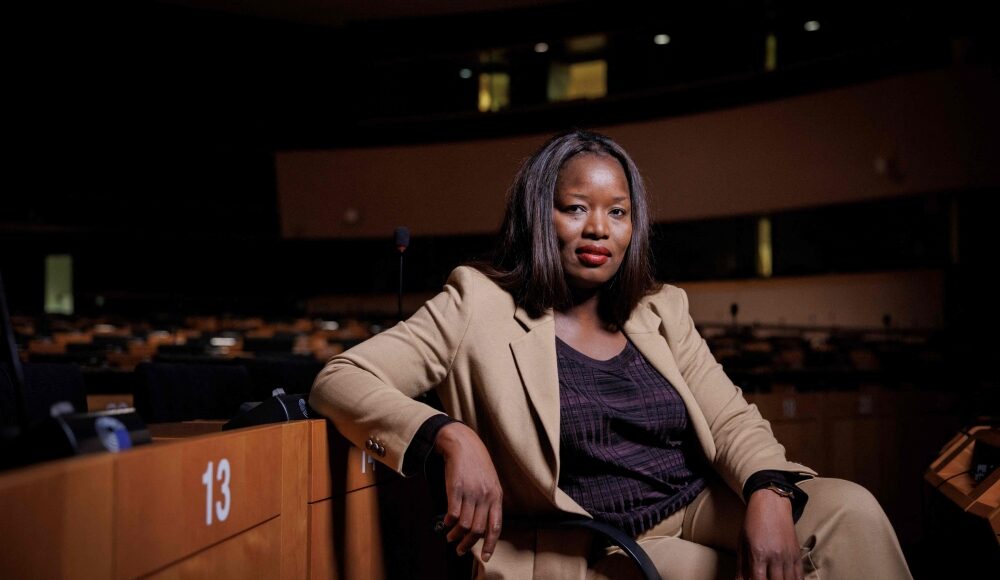BRUSSELS, May 30 — When Assita Kanko was 10 years old, she pictured herself as president of her native Burkina Faso—with a mission to stamp out female genital mutilation, and further women’s rights.
As it turned out, she sits as a Belgian lawmaker in the ranks of the hard-right in the European Parliament, and says that suits her just fine.
The 44-year-old says she feels at home among the European Conservatives and Reformists (ECR) — one of three groups in the assembly’s far-right bloc, whose influence has grown steadily since elections last year.
As one of three EU lawmakers from the Flemish nationalist N-VA party, she rubs shoulders in the ECR with around 20 other outfits including Giorgia Meloni’s post-fascist Brothers of Italy, and Poland’s PiS.
She also crossed paths with Meloni at the inauguration of Donald Trump—where they were both handpicked, as likeminded European politicians, to welcome the US leader back to office.
Despite divergences with some ECR members on “ethical” issues, Kanko pushes back at criticism of her decision to join the N-VA, a staunchly conservative party with a tough line on immigration.
“The idea that a black woman cannot also be right-wing is outrageous,” she told AFP. “I want the right to think and I take that right to think, I don’t ask permission.”
Fighting for women’s emancipation has been a cornerstone of her life in politics, she says.
Born in Godyr, Burkina Faso, in 1980, Kanko was subjected to female genital mutilation at the age of five—like three quarters of women in the country.
She shared her trauma from the experience in a 2013 book, the first of four she has written about gender equality.
“If my mother had had means of her own, I am convinced I would not have been circumcised,” she said.
“Today I am a very independent woman—and no one would dare mutilate my daughter. That has to be the goal.”
EU being ‘trampled’
A “top of the class” high-school student in Burkina Faso—in her own words—Kanko left to study in the Netherlands in 2001.
From there she would move to Belgium—where speaking both Dutch and French proved a boon to her career, in the private sector then as a municipal official in a district of Brussels.
Fast-forward to 2018, and Kanko decided to jump ship, leaving the centre-right MR party for the N-VA—the political home of Belgium’s current prime minister, Bart De Wever.
“I feel unstoppable, free and proud to be a new Flemish woman,” she explained on the party’s website at the time.
Kanko describes herself as pro-business, as a sovereigntist—attached to the role of national governments within the EU—and as a fervent Atlanticist.
That’s how she explains her decision to attend the swearing-in of a US president who has made clear his disdain for the European Union—which he says was founded to “screw” the United States.
“The United States is a partner we cannot do without,” she said. “We have to form a bloc to defend Western values in the world.”
But Kanko also warns that “unless we believe in our own power, our own priority and strategies, Donald Trump will walk all over us.”
As it stands—with a transatlantic trade war brewing and US security support in question—she considers “the European Union today is being trampled underfoot—and not just by the United States.”
“It’s trampled on by countries in the Middle East too, trampled on by China, trampled on by Russia, trampled on by radicals living on our own territories,” argued Kanko—who was raised in a Muslim culture but did not adopt the faith, and sees Islamic extremism as a threat.
In the EU parliament, Kanko has focused on security and border control—and has sought to spotlight a report sounding the alarm about the Muslim Brotherhood as a threat to secularism and women’s rights in France and beyond.
Kanko wants to see the organisation investigated at European level.
“We need to wake up,” she told fellow lawmakers in parliament recently, accusing the brotherhood of “indoctrinating children” and “treating women as inferior.” — AFP





